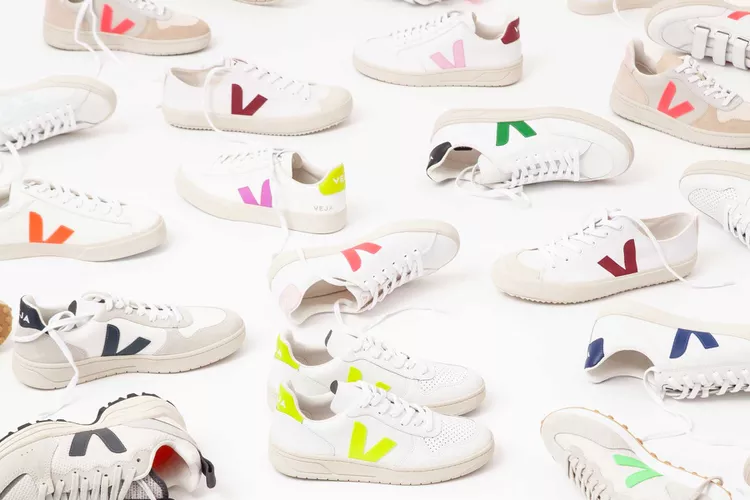Global Vision Awards: Honoring Sustainable Practices in Travel and Retail
The Global Vision Awards honorees in this category are raising retail standards to prioritize sustainable sourcing and ethical manufacturing practices.
The iBestTravel Global Vision Awards aim to identify and honor companies, individuals, destinations, and organizations taking strides to develop more sustainable and responsible travel products, practices, and experiences. Not only are they demonstrating thought leadership and creative problem-solving, they are taking actionable, quantifiable steps to protect communities and environments around the world. Moreover, they are inspiring their industry colleagues and travelers to do their part.
The items we bring with us on a trip can be just as impactful as any other aspect of the travel experience. Retailers in every industry are starting to catch on, making more sustainable decisions about how they source materials, how they pay their vendors, how they treat their employees, and how their manufacturing processes impact the planet. Therefore, it is essential for us, as consumers, to spend our hard-earned dollars with companies that uphold our values. Whether they’re paying above market-rate for materials or covering the cost of carbon offsets, these Global Vision Awards honorees have chosen to follow a sustainable, responsible path that protects both the earth and the people they work with around the world.
Furtuna Skin
:max_bytes(150000):strip_icc():format(webp)/furtuna-skin-PRODUCTSGVA0421-94cb086cb23847448bf0bd65e502f92f.jpg)
By tapping into the natural bounty of her family’s mountainous 800-acre estate in Sicily, Agatha Relota Luczo infuses a deep sense of place into Furtuna Skin — the beauty brand she founded with industry vet Kim Walls. Most beauty products employ natural oils, water, or some combination of the two as delivery vehicles; Furtuna uses olive oil and water infused with leaves from the Luczos’ 15,000 olive trees. Dozens of other ingredients, often identified with the help of nonne in the area and then analyzed by Furtuna’s scientists, are wild-foraged on the land, 80 percent of which is designated as a conservation area. Wild Italian bugloss (anchusa Azura), traditionally used in poultices to treat snakebite, helps their eye serum lift and brighten, while love-in-a-mist (nigella Damascena) brings its potent anti-inflammatory properties to a new eye cream. “We’re taking age-old wisdom,” says CEO Walls, “and marrying it with modern science.”
Paravel
:max_bytes(150000):strip_icc():format(webp)/paravel-luggage-PRODUCTSGVA0421-eca983c9c5c140d9b0327b2caa6ae269.jpg)
For Indre Rockefeller and Andy Krantz, creating a chic yet fully sustainable luggage line meant getting granular. Reimagining existing designs in nylon made from recycled water bottles was relatively straightforward. However, it took a year longer than planned to design their Aviator line of checked bags, as they assessed the materials needed for every element and sourced eco-friendly options. Today almost all their materials are recycled, from the polycarbonate shell to the synthetic lining. And because manufacturing and shipping can never be truly carbon-neutral, Paravel purchases offsets to mitigate those emissions — and buys even more to cover the traveler’s first journey with the suitcase. By next year, Paravel hopes to become “the world’s first sustainable travel-goods brand.” Rockefeller acknowledges that’s a tall order. “That doesn’t mean we’ll be perfect,” she says. “It means that every single product, every single decision, every single partnership will be viewed through the lens of sustainability. This is a never-ending journey. We will never be done.”
Veja
:max_bytes(150000):strip_icc():format(webp)/veja-shoes-PRODUCTSGVA0421-d09fba6691994a74aa9d7244b91a4eda.jpg)
“We wanted to create a sneaker that respects human beings and the environment,” says Sébastien Kopp, who cofounded Veja with Francois-Ghislain Morillion. From the get-go, the pair was adamant about making environmental and social good core to their business. Their cotton is grown by Brazilian and Peruvian cooperatives that practice soil-enriching processes, and the latex for their rubber comes from sustainably harvested trees in the Brazilian Amazon and is processed locally to ensure added value for the community. Consequently, factory operators deemed them crazy when they learned that Veja was paying significantly above-market prices for goods. Yet business has thrived; the company sells more than 550,000 pairs of shoes annually. The people supplying their raw materials have benefited from earning higher incomes and living in healthier ecosystems. Next: finding responsibly made leather. “We thought it was well done, and it wasn’t,” Kopp says, noting that ethical sourcing is an ongoing process. “This work can be hard, but many people don’t realize the happiness this kind of journey brings.”




